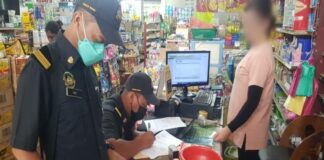CYBERJAYA, Sept 22 — Malaysia is well-prepared to handle a spike in COVID-19 cases but the country has to address several weaknesses, said the World Health Organisation (WHO) representative.
Dr Lo Ying-Ru Jacqueline, the WHO representative to Malaysia, Brunei Darussalam and Singapore, said the weaknesses include preventing infections at detention centres, and strengthening the surveillance system by increasing awareness within the private healthcare sector.
“I think Malaysia is well-prepared for the next surge. (But) it may be good to look at the closed settings, confined settings, prisons, (and see that) the measures recommended by the government are also actually implemented.
“I understand preparations are underway and measures have been taken but it has to go down to the implementation. It has to be monitored very carefully,” she told Bernama in an exclusive interview at her office.
Malaysia has seen a return to double- and triple-digit infections of local transmission of COVID-19 after reporting a lull in infections in July and August when most of its daily load of cases came from overseas.
To date, 582 inmates, staff, family members and close contacts in Tawau and Lahad Datu and one person in Sandakan, all in Sabah, tested positive for the new coronavirus. All of them are within the detention centre cluster.
Dr Lo also said that the surveillance system needed to be improved by educating the private healthcare sector on the various symptoms of COVID-19.
“We know that in COVID-19, the majority of cases is asymptomatic. They can have very mild symptoms or even no symptoms. So, it’s very difficult and complicated (to determine) ‘when do we test? It’s very important that constant training is expanded to private sector facilities because COVID-19 can be present anywhere,” she added.
Malaysia has had several cases arising from the failure of private doctors and health practitioners to test and notify health authorities of possible COVID-19 cases.
Private health practitioners are required but not obligated to test and report patients with Severe Acute Respiratory Illness (SARI) and Influenza-Like Illness (ILI) symptoms as part of the COVID-19 surveillance system.
Dr Lo said that to prevent this, health practitioners should take advantage of the easy availability of tests in Malaysia and do more tests.
Malaysia has improved its daily testing capacity, from 11,500 in March to about 40,000 now.
She commended Malaysia for moving away from testing only symptomatic individuals, and expanding testing to other communities.
She said increasing testing was important to finding sporadic cases, such as the four reported in Kedah on Sunday.
“Testing and searching for cases is one of the key strategies to prevent further COVID-19 transmissions. It’s a very, very important strategy,” she said.
Dr Lo also reminded that it is important to be prepared to keep practising COVID-19 preventive measures long after a safe and effective vaccine becomes available, projected by the WHO to be by the end of 2021.
“The vaccine alone is not the solution. The vaccine has to be available in the quantities we need,” she said.
Malaysia joined the COVAX facility, an initiative by Gavi, the Vaccine Alliance, the Coalition for Epidemic Preparedness Innovations (CEPI) and WHO, on Sept 19.



















